
Mozambique, officially the Republic of Mozambique, is a country located in southeast Africa bordered by the Indian Ocean to the east, Tanzania to the north, Malawi and Zambia to the northwest, Zimbabwe to the west, and Eswatini and South Africa to the southwest. The sovereign state is separated from the Comoros, Mayotte and Madagascar by the Mozambique Channel to the east. The capital and largest city is Maputo.
Mozambique was a Portuguese colony, overseas province and later a member state of Portugal. It gained independence from Portugal in 1975.
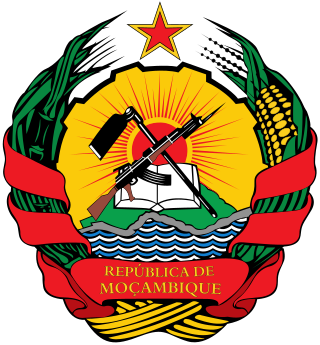
Politics in Mozambique takes place in a framework of a semi-presidential representative democratic republic, whereby the President of Mozambique is head of state and head of government in a multi-party system. Executive power is exercised by the government. Legislative power is vested in both the government and the Assembly of the Republic.

Kruger National Park is a South African National Park and one of the largest game reserves in Africa. It covers an area of 19,623 km2 (7,576 sq mi) in the provinces of Limpopo and Mpumalanga in northeastern South Africa, and extends 360 km (220 mi) from north to south and 65 km (40 mi) from east to west. The administrative headquarters are in Skukuza. Areas of the park were first protected by the government of the South African Republic in 1898, and it became South Africa's first national park in 1926.

Joaquim Alberto Chissano is a politician who served as the second President of Mozambique, from 1986 to 2005. He is credited with transforming the war-torn country of Mozambique into a successful African democracy. After his presidency, Chissano became an elder statesman, envoy and diplomat for both his home country and the United Nations. Chissano also served as Chairperson of the African Union from 2003 to 2004.
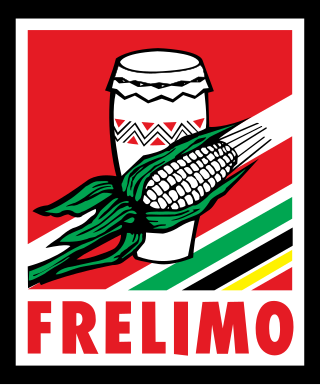
FRELIMO is a democratic socialist political party in Mozambique. It has governed the country since its independence from Portugal in 1975.

The white rhinoceros, white rhino or square-lipped rhinoceros is the largest extant species of rhinoceros. It has a wide mouth used for grazing and is the most social of all rhino species. The white rhinoceros consists of two subspecies: the southern white rhinoceros, with an estimated 16,803 wild-living animals, and the much rarer northern white rhinoceros. The northern subspecies has very few remaining individuals, with only two confirmed left in 2018. Sudan, the world's last known male northern white rhinoceros, died in Kenya on 19 March 2018 at age 45.

The eastern black rhinoceros, also known as the East African black rhinoceros, is a subspecies of the black rhinoceros. Its numbers are very low due to poaching for its horn, and it is listed as critically endangered.

The western black rhinoceros or West African black rhinoceros is an extinct subspecies of the black rhinoceros. It was declared extinct by the IUCN in 2011. The western black rhinoceros was believed to have been genetically different from other rhino subspecies. It was once widespread in the savanna of sub-Saharan Africa, but its numbers declined due to poaching. The western black rhinoceros resided primarily in Cameroon, but surveys since 2006 have failed to locate any individuals.

Mozambique has a historic Hindu community. Some of their ancestors came to Mozambique at least 500 years ago. Predating their economic participation in Mozambique before the arrival of Vasco da Gama, they adapted during the Portuguese colonial rule. An exodus began during the civil war between 1975 and 1990. After 1990 political and social reforms in Mozambique, the Hindu community along with the other minority religions, have once again begun to become vibrant.
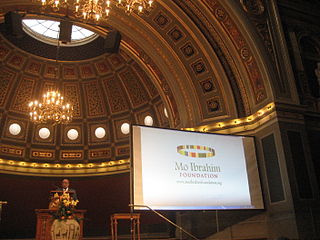
The Mo Ibrahim Foundation is an African non-grant foundation founded in 2006 by businessman Mo Ibrahim. Headquartered in London and Dakar, Senegal, it works to strengthen governance and leadership in Africa through its key initiatives:

The International Rhino Foundation (IRF) is a Texas-based charity focused on the conservation of the five species of rhinoceros which include the White Rhinoceros and Black Rhinoceros of Africa, and the Indian Rhinoceros, Javan Rhinoceros and Sumatran Rhinoceros of Asia.

Established in 1998, The Steve Biko Foundation (SBF) is a community development organisation in South Africa. The organisation is inspired by the late anti-apartheid activist Steve Biko (1946–1977).
The African Wildlife Foundation (AWF) is an international conservation organization created with the intent of preserving Africa's wildlife, wild lands, and natural resources. Founded in 1961, the organization helped establish conservation programs at the College of African Wildlife Management, Mweka in Tanzania, and the Ecole de Faune de Garoua in Cameroon. The Foundation works with governments and businesses to develop conservation efforts as a source of revenue.
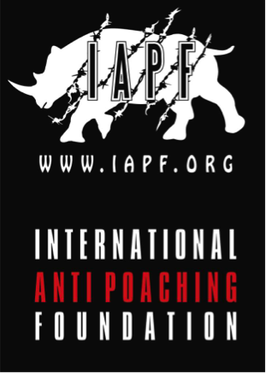
Akashinga, is a non-profit organisation registered in Australia, predominantly operating on the African continent. The group initially created a structured military-like approach to conservation, employing tactics and technology generally reserved for the modern-day battlefield, and has since moved to a community oriented approach. This has included the training of local women as rangers.
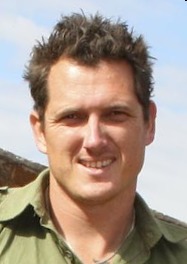
Damien Mander is an anti-poaching activist and the founder of Akashinga. He is a former Australian Royal Navy Clearance Diver and Special Operations military sniper. He is also a director of the Conservation Guardians. In 2019, he received the Winsome Constance Kindness Trust Gold Medal.

The southern white rhinoceros or southern white rhino is one of the two subspecies of the white rhinoceros. It is the most common and widespread subspecies of rhinoceros.

Brazil–Mozambique relations are the bilateral relations between Brazil and Mozambique. Both nations are members of the Community of Portuguese Language Countries, Group of 77 and the United Nations.
The Economic and Social Forum of Mozambique was created in 2014 by the SOICO Group and today is also supported by the SOICO Foundation - FUNDASO. MOZEFO is a private economic and business forum whose purpose is to establish economic contacts in various areas of development, as well as to discuss the social and cultural conditions of the Mozambican people in various domains.
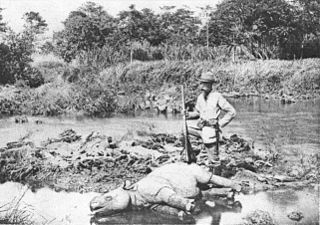
Rhinoceros poaching in southern Africa is the illegal act of slaughtering rhinoceros in the southern African countries of Namibia, Botswana, Zimbabwe and South Africa, where most of Africa's rhinos live. The most common reason for rhino poaching is to meet the high demand for their horns in Asian countries, where the horn is predominantly used in Traditional Chinese Medicine but is increasingly being used as a symbol of wealth and prosperity. In previous generations, the most common rhino poaching activity was hunting for recreational purposes. Because of excessive poaching, rhino populations have decline rapidly since the 1970s, leaving some species critically endangered and facing extinction.
















